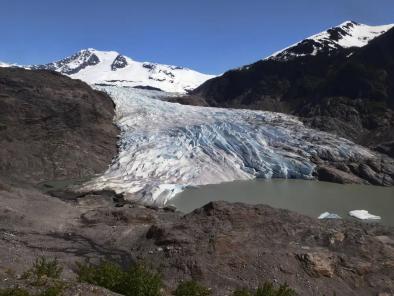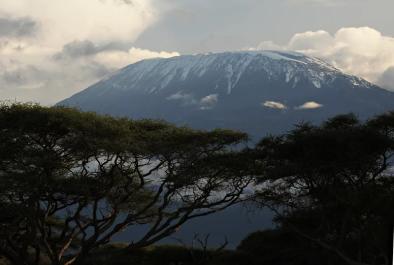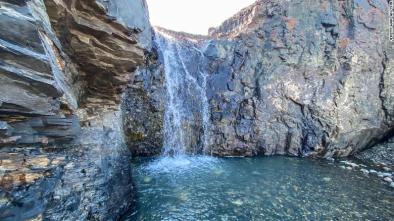Melting Ice Has Global Impacts
Rapidly melting ice at the Earth's poles and atop its mountain ranges has drastic local and far-flung impacts — all exacerbated by climate change — an interactive NPR series illustrates. Feedback loops set off by climate change, mainly caused by the extraction and combustion of fossil fuels, are accelerating the melting of polar and glacial ice, raising sea levels at disparate rates, endangering those living below mountain glaciers, and even making wildfires worse in the Western U.S. As the Arctic Ocean warms, sea ice melts, further accelerating ocean warming to the point it can disrupt the Jet Stream across North America, leading to hotter, dryer weather across the American West during the fall — the exact conditions required to supercharge wildfires. As the West Antarctic ice sheet melts, the massive influx of fresh water can disrupt Atlantic Ocean currents, pushing sea levels in Texas disproportionately higher than elsewhere around the globe. As the Greenland ice sheet melts, it too dumps fresh water into the North Atlantic Ocean, slowing ocean currents, disproportionately heating the Gulf of Maine, and significantly disrupting plankton populations — a key food source for right whales — there. This forces right whales to swim hundreds of miles north into unfamiliar waters where more than 20 have been killed by ships or fishing gear. Not all dangers caused by melting ice are so distant or complicated. People living below mountain glaciers, like those in Nepal's Rolwaling Valley, are vulnerable to catastrophic floods unleashed by rapidly growing glacier-melt lakes held back by precarious natural dams of rock and ice. When these lakes burst, the deadly flash floods can sweep away bridges, farmland, and even whole towns. Disappearing glaciers, like the Quelccaya glacier in the Peruvian Andes, can also deprive those living nearby of long-depended-upon water sources.
(NPR; Wildfires: NPR; Texas sea levels: NPR; Whales: NPR, NPR; Glacial lake risk: NPR; Andean glacier water: The Guardian; Ocean currents: Yale Environment 360)
(Climate signals background: Glacier and ice sheet melt)
To receive climate stories like this in your inbox daily click here to sign up for the Hot News Newsletter from Climate Nexus:
Related Content






